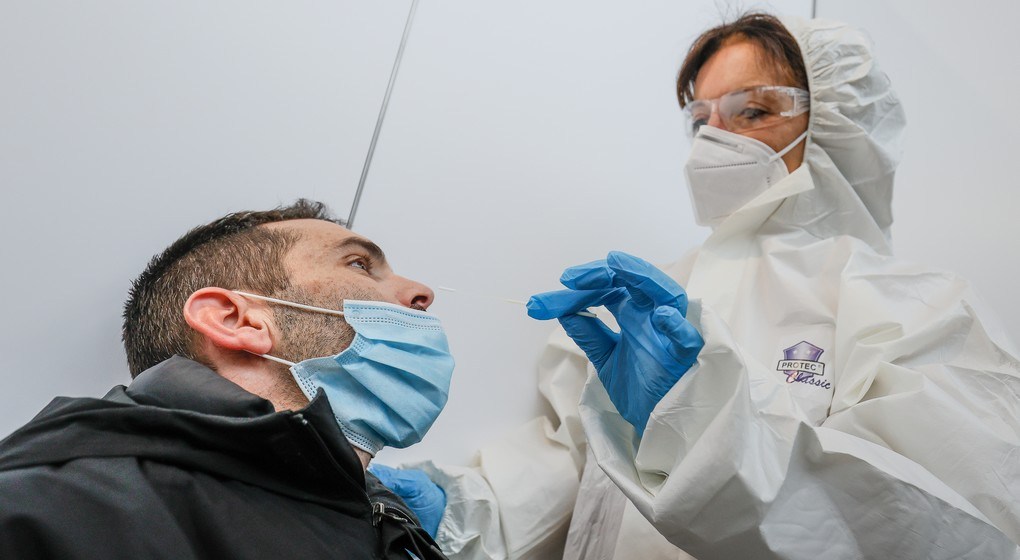Over the past eight weeks, just under 23,000 people in Belgium (both vaccinated and unvaccinated) were reinfected with Covid-19, after having previously already contracted it, according to figures in the latest report by the Sciensano National Health Institute.
The number of people who contract a Covid-19 infection for the second time remains fairly stable, and has been fluctuating just above 10% for quite some time, reports Sciensano. Unlike with many other infectious diseases, such as measles, the reinfection figures rise slightly before stabilising again every time a new variant is detected.
"The coronavirus mutates much faster than the measles virus, but make no mistake: immunity to measles also requires several vaccinations," virologist Marc Van Ranst told De Morgen. "It is the same with Covid-19. The current vaccine is also based on the original Wuhan variant."
He added that Omicron partly bypasses people's accumulated immunity. A previous study by Sciensano showed that initial vaccine protection against infection after the first two shots was just 37%, but went up to 52% after one booster dose. Still, protection against severe disease and hospitalisation remains very high (87%) after three doses.
Differences in resistance
Like with the flu, many factors determine why some people get reinfected every year while others seemingly manage to avoid the virus for 20 years, Van Ranst said. "A social butterfly will get sick faster than someone who hardly goes outside, but there are also genetic factors: some people are naturally more resistant to infection."
While it has been scientifically proven that the immune system does not work as well in extreme exhaustion or cold, there are also more subtle differences. "Women, for example, get an infection slightly less often than men, as genetic resistance to infection is linked to the X chromosome. Men only have one of these and women have two. We are still learning a lot about this."
Normally, symptoms should be milder for someone who is infected for the second (or even third) time, but that is not necessarily the case, said Van Ranst.
"It depends on whether you are part of a high-risk group, and whether you have been vaccinated or not," he explained. "How much time there is between a first and second infection also plays a role. The more time there is between a vaccination and an infection, the greater the chance of more severe symptoms."
Related News
- Why Covid 'twin variants' BA.4 and BA.5 spread so fast
- New Omicron sub-variant now dominant in Belgium: What does this mean?
The situation is similar to that for the flu: while there is no vaccine that protects for life, new immunity is built up with each vaccine dose. That is also why the predicted summer Covid-19 wave was "a hill, not a mountain" of infections, hospitals were not overburdened and new restrictions were not needed.
Van Ranst said that he hopes the virus will soon become endemic, as it is unlikely to go away entirely. In practice, that would mean that Covid-19 will become a seasonal virus: hardly present in the summer, and only reappearing during the winter months.
"However, 'endemic' does not mean that there is no longer a problem," he stressed. "In some regions of the world, cholera is endemic and causes major problems. It is way too early to say that there is no more danger."
"But let us hope that the basic rules for not getting infected – wearing masks in crowded indoor areas, keeping your distance and ventilation – become part of common sense," he added. "Then it will no longer be necessary to call for drastic, society-disrupting measures every winter."

